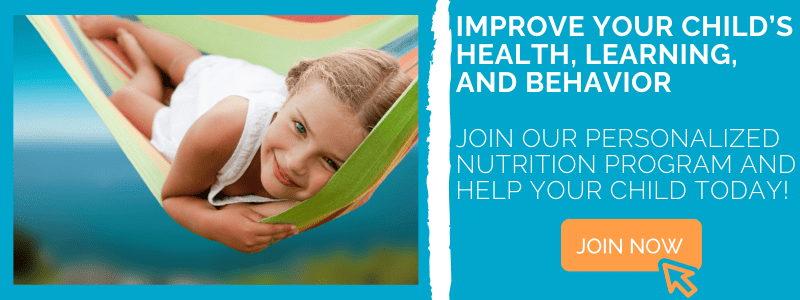One of the most successful diets for autism (as reported by 1446 parents of DAN – Defeat Autism Now) is the gluten and casein-free (dairy-free) diet. Sixty-five percent state that their child improved when implementing this diet. In fact, it is one of the most beneficial interventions even when considering supplements, medications, and other therapies. As such, I frequently suggest a casein-free diet as one of the first dietary steps.
So why an article on raw dairy if I’m frequently encouraging people to avoid dairy?
Raw dairy is very different. Raw dairy is unpasteurized dairy (and not available in all states). Many people who can not tolerate dairy, can handle raw dairy. Why is this? While we are not completely certain, since it appears the FDA does not allow research on raw dairy (can this be true?) – however, here are a couple theories I’ve heard that make a lot of sense. The first is, the casein molecule may be being altered by the high heat pasteurization process making it unrecognizable by the body – causing an “allergy” or intolerance. The second is that virtually all commercial and most organic dairies feed their cows grain – grain is not their naturally diet and these very inflammatory grains may be creating inflammatory fats and substances that inflame the intestinal tracts of the people who consume it.
But if milk is so problematic, why consume it at all? One reason is that studies show that consumption of milk fat (pasteurized or raw) reduces the risk of asthma, hay fever and allergy symptoms (Riedler J., Lancet Oct 6, 2001) (Wilga A.H., Thorax 2003).
Here are some of the benefits of RAW dairy specifically:
• More digestible – as mentioned, increased digestibility and other factors (known and unknown), some people who cannot tolerate pasteurized dairy can consume raw dairy healthfully
• The fatty acids (such as butyric) in raw dairy/butter nourish the brain and intestinal lining, and have antimicrobial properties
• Contains phosphatase (non-existent in pasteurized) – crucial enzymes for the absorption of calcium
• Natural probiotics for gut health and healing
• The fatty acids (such as butyric) in raw dairy/butter nourish the brain and intestinal lining, and have antimicrobial properties
In terms of safety, you’d be amazed at how clean and safe it is. Farmers who produce raw dairy typically take the BEST care of their cows – feeding them a healthy diet of green grass, significant access to pasture, no antibiotics, and no grain. The cows are very healthy so they do not have disease – Organic Pastures in California was tested by the state (and tested regularly) and found to have NO pathogens even in the manure. The FDA and CDC are correct to an extent, commercial dairy is loaded with pathogenic bacteria because of the horrible conditions they are raised in – and I would never consume that milk raw. Raw milk is very different. On first taste, you’ll notice the significant difference in quality and taste – everyone is amazed at how delicious it is.
Dairy can be highly nourishing or a toxin depending on the quality – especially for children on the autistic spectrum. Before rushing out to try it, consider the following: Raw dairy is not for everyone. If your child is VERY sensitive to casein, even raw dairy often will also not be tolerated. If your child has a true IgE food allergy, do not try raw dairy. Finally do your own research on raw dairy to determine how YOU feel about the safety of raw dairy. While my experience has been very positive, there is risk of food poisoning with every food so you want to feel comfortable for yourself, before proceeding.
Start slowly. Raw BUTTER is often best tolerated and a good place to start – as it has very little casein and all of the beneficial fatty acids. Many families using the Body Ecology Diet by Donna Gates for autism have been using raw butter with positive results.
To learn more about where to get it and if your state allows it: Go to http://WestonAPrice.org.
Raw Dairy with Autism

Julie Matthews is a Certified Nutrition Consultant who received her master’s degree in medical nutrition with distinction from Arizona State University. She is also a published nutrition researcher and has specialized in complex neurological conditions, particularly autism spectrum disorders and ADHD for over 20 years. Julie is the award winning author of Nourishing Hope for Autism, co-author of a study proving the efficacy of nutrition and dietary intervention for autism published in the peer-reviewed journal, Nutrients, and also the founder of BioIndividualNutrition.com. Download her free guide, 12 Nutrition Steps to Better Health, Learning, and Behavior.



Allergy symptoms occur when your immune system overreacts to an allergen—something that usually is harmless, such as plant pollen, dust mites, molds, insect stings or food. If you have an allergy, your immune system acts as if the allergen were dangerous, releasing a chemical called histamine that causes allergy symptoms.
You probably just need to make sure you do not heat the raw dairy above 90 degrees to make sure it’s digestable and your child won’t have problems with it. I’m a big fan of the Body Ecology Diet and they recommend “dairy loving proteins” from their young green coconut kefir first before trying the raw dairy
We are experimenting with a raw dairy now with our Asperger’s son. He seems to be making improvements. My question is whether I should be dairy free in baked goods and cheeses, anything that the process has required heat. Or can I use raw dairy and make him cheese and baked goods? I’m not sure what to think about this issue and would love to hear from anyone who is experimenting with raw dairy!